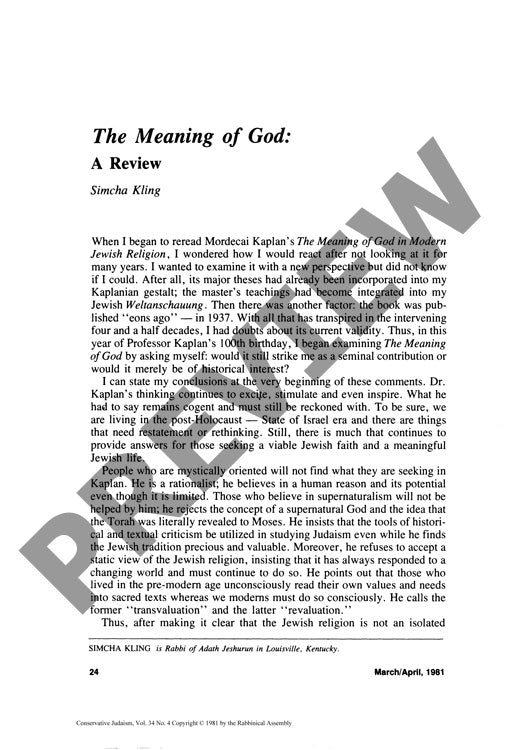The Meaning of God a Review
Couldn't load pickup availability
Mordecai Kaplan's 1937 work "The Meaning of God in Modern Jewish Religion" offered a revolutionary rationalist theology that remains intellectually compelling even after transformative events like the Holocaust and Israel's establishment. A retrospective analysis, conducted on Kaplan's centennial, reveals the enduring relevance of his functional definition of God as the aggregate of forces that imbue human life with meaning and enable salvation. Kaplan's systematic revaluation of Jewish religious practices—particularly his interpretation of Sabbath as a vehicle for personal and communal renewal, and his reconceptualization of festivals as expressions of ethical responsibility and material stewardship—demonstrates how traditional observances can be reframed for modern sensibilities. While critics may find his theological framework insufficient for comprehensive cosmological understanding, Kaplan's reinterpretation of Jewish sacred practices continues to provide profound meaning for contemporary seekers of authentic Jewish religious experience and maintains significant pedagogical value in modern theological discourse.

More Information
-
Physical Description
-
Publication Information
Published 1981
ISBN
-
Publication Credits
Simcha Kling

